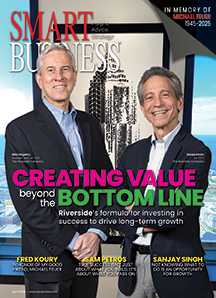Cleveland is often referred to as the “Green City on a Blue Lake,” recognizing its bold ambition to pursue transformative business opportunities and simultaneously think green.
In my line of work, I meet lots of entrepreneurial university students who generate cutting-edge and inspirational business ideas. Frequently, these ideas couple a focus on profit with simultaneous pursuit of sustainable business practices that help to protect the Earth and its inhabitants. Venture coaching and mentoring guide students as they develop their ideas and pitch them to peers and judges. These formative experiences prepare students to grow their own ventures, or work for companies that offer earth-friendly jobs to innovative candidates with green skills.
Younger consumers increasingly make purchasing decisions based on their personal beliefs about the threats of climate change, pollution and resource depletion. Their buying patterns seek out brands that tout eco-friendly practices and green manufacturing standards. Entrepreneurial companies are taking heed of these market trends and reimagining their companies to factor green standards into their processes and messaging.
All of this attention aimed at protecting the environment is referred to as the “green transition, ” leading to increased availability of jobs that require green skills. Green skills, according to LinkedIn, are “those that enable the environmental sustainability of economic activities” and “contribute to reducing pollution or conserving natural resources.” Companies are seeking talent that can advance clean energy and green manufacturing agendas. Consequently, the number of jobs that require green skills is rapidly growing, while availability of candidates equipped with green skills is not keeping pace.
Avenues to upskill or build a green portfolio of skills may be secured through offline and online resources, including certifications. Preparation may also include specialized training or qualification in targeted green skills. For example, American Clean Power Association offers an array of micro-credentials that equip students or current employees with precise skills that can be combined to build broader skill sets enabling team members to succeed in relevant jobs on clean energy sites.
At Case Western Reserve University, the Fowler Center for Business as an Agent of World Benefit was established in 2009 by Chuck and Char Fowler “to create a world in which business can prosper, human beings can flourish and nature can thrive.” The Fowler Center encourages the view that business can serve as an agent of world benefit through its annual Flourish Prizes Global Forum series, and through research, teaching and applied service. Chuck Fowler said, “Sustainability is here to stay, and it’s not just the right thing to do but it’s a business innovation engine — doing good and doing well are totally and mutually reinforcing, and sustainability provides an overarching ideal and storehouse of leadership tools to make it so.”
For innovative and entrepreneurial students, there are boundless opportunities emerging in the sustainability space for venture creation and exciting possibilities to be part of teams at larger companies exploring and creating the future of sustainability and clean energy. ●
Deborah D. Hoover is CEO of Entrepreneurship Education Consortium


